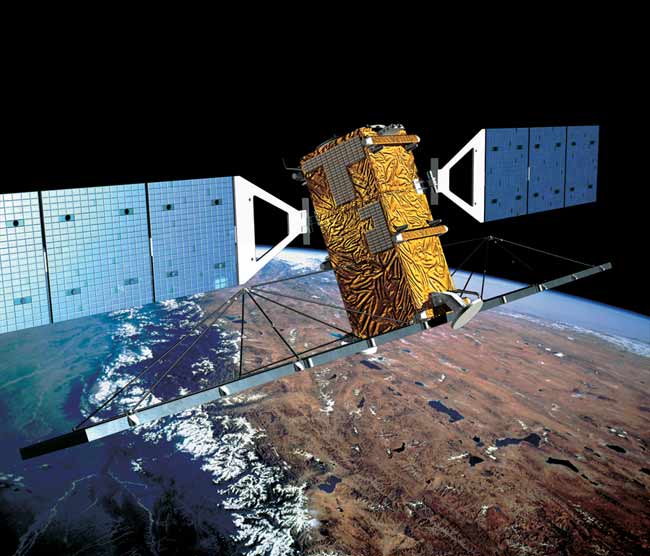Canadian Earth-Watching Satellite Finally Reaches Orbit

PARIS -Canada's Radarsat-2 Earth observation satellite, which has been almost a decadein design and construction, launched successfully Friday aboard a Russian Soyuz-Fregatrocket from Russia's Baikonur Cosmodrome in Kazakhstan, according tolaunch-services provider Starsem S.A. of France.
The 4,850-pound(2,200-kilogram) Radarsat-2 is expected to operate for seven years in a 495-mile(798-kilometer), sun-synchronous low Earth orbit and provide radar images witha ground resolution as sharp as 10 feet (three meters) and as wide as 328 feet(100 meters).
Despitebeing delayed by a host of technical and policy issues over the years, Radarsat-2arrived in orbit in time to assure continuous radar Earth observation forCanadian authorities before Radarsat-1 is retired.
Radarsat-1,which provides images with a maximum sharpness of 10 meters, was launched in1995 on what was designed as a five-year mission. It continues to operatetoday.
Radarsat-2features an improved on-board memory and image-taking flexibility as well as ahigher-resolution imaging mode. It is the product of a partnership between theCanadian Space Agency (CSA) and MacDonald, Dettwiler and Associates (MDA) ofRichmond, British Columbia CSA has said its total Radarsat-2 budget is 421.6million Canadian dollars ($419 million), and that MDA has spent an additional90 million Canadian dollars on the satellite.
The launchof Radarsat-2 brings to a close an unusually busy year for radar Earth observation.German and Italian high-resolutionradar satellites also began service this year, for both government andcommercial customers.
MDA isRadarsat-2 prime contractor, with Thales Alenia Space of France and Italy providing the satellite platform. An MDA unit supplied the radar sensor.
Get the Space.com Newsletter
Breaking space news, the latest updates on rocket launches, skywatching events and more!
The launchwas managed by Starsem of Paris, a French-Russian joint venture that marketsSoyuz rockets commercially.
- Looking Back on 50 Years of Spaceflight
- IMAGES: 20 Great Rocket Launches
- All About Satellites
Join our Space Forums to keep talking space on the latest missions, night sky and more! And if you have a news tip, correction or comment, let us know at: community@space.com.

Charles Q. Choi is a contributing writer for Space.com and Live Science. He covers all things human origins and astronomy as well as physics, animals and general science topics. Charles has a Master of Arts degree from the University of Missouri-Columbia, School of Journalism and a Bachelor of Arts degree from the University of South Florida. Charles has visited every continent on Earth, drinking rancid yak butter tea in Lhasa, snorkeling with sea lions in the Galapagos and even climbing an iceberg in Antarctica. Visit him at http://www.sciwriter.us









